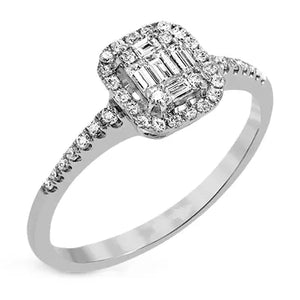Diamond Clarity refers to the absence of inclusions and imperfections
To recognize diamond clarity, we need to first recognize how diamonds are formed. To recognize diamond clarity, we need to first recognize how diamonds are formed. Natural diamonds are the result of carbon being subjected to tremendous heat and pressure deep within the earth. This process can result in various internal features called "inclusions" and external features called "defects".
Assessing a diamond's clarity involves determining the number, size, relief, nature, and location of these features and their effect on the stone's overall appearance. When trying to determine a diamond's maximum clarity, remember that a perfectly pure diamond does not exist. But the closer you get to purity, the better the transparency.
The Diamond Clarity Scale has 6 categories, some of which are subdivided, for a total of 11 specific grades.
- Flawless (FL) No inclusions or blemishes visible under 10x magnification
- Internally Flawless (IF) No seen inclusions at 10x magnification
- Very, Very Slightly Included (VVS1 and VVS2) Inclusions so minor that they are difficult for an experienced grader to see under 10x magnification
- Very Slightly Included (VS1 and VS2) The inclusions are observed with effort at 10x magnification, but can be characterized as minor
- Slightly Included (SI1 and SI2) Inclusions are visible at 10x magnification
- Included (I1, I2, and I3) Inclusions are clearly visible at 10x magnification, which can affect transparency and clarity
You can also read our gold virgo necklace complete guide blog post.













